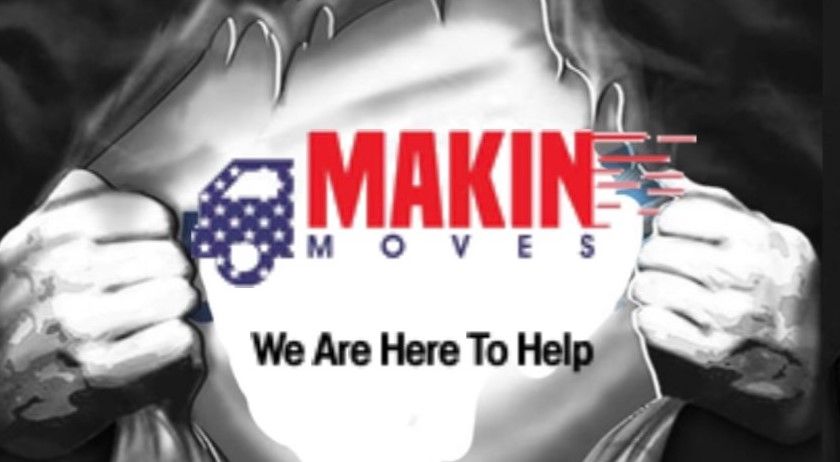Understanding the Cost Breakdown of Hiring Moving Labor: A Comprehensive Guide
Moving can be a stressful and expensive process, and hiring moving labor is one way to alleviate some of the burdens. However, understanding the cost breakdown of hiring moving labor can be complex and overwhelming. In this comprehensive guide, we will delve into the factors that influence the cost of hiring moving labor. From the size of your move to the distance traveled, we will explore how these factors can impact the final price you pay. By gaining a better understanding of the cost breakdown, you will be equipped to make informed decisions and ensure a smooth and affordable moving experience. So, let's dive in and unravel the intricacies of hiring moving labor costs.
Introduction to Moving Labor Costs
The Importance of Understanding Moving Labor Costs
Understanding the costs of hiring moving labor is critical for budgeting and avoiding unexpected expenses during your move. Knowing what you're paying for helps in assessing the value of the services provided. It can also reveal potential areas where you might save money. For instance, understanding the cost structure might show you that packing items yourself can significantly reduce expenses, or that moving during off-peak seasons could be cheaper. Additionally, being informed about moving labor costs helps you to compare different companies and services effectively, ensuring you get the best deal. Ultimately, a clear understanding of these costs leads to better planning, a smoother moving experience, and peace of mind, as it mitigates the risk of falling victim to hidden charges or moving scams.
The Complexity of Moving Labor Costs
The cost of hiring moving labor is not a straightforward calculation. Several variables come into play, making it complex. The final cost is influenced by the number of movers needed, the time it takes to complete the move, and the specific services required, such as packing and unpacking. Additionally, if the move involves navigating difficult spaces or handling delicate items, costs can increase. Geographic location also plays a role; for example, moving rates in urban areas may be higher than in rural areas. There's also the element of supply and demand — rates can fluctuate based on the season and availability of moving services. This complexity means that moving quotes can vary widely, and without a detailed breakdown, it may be difficult for customers to understand why one service is priced differently from another.
Factors Influencing the Cost of Moving Labor
The Size and Complexity of Your Moving Project
The size of your move significantly affects the cost of hiring moving labor. A larger home with more items to transport will naturally require more manpower and time, resulting in higher costs. Complexity is another critical factor. A straightforward move with easy access and no extraordinary items is less expensive compared to a move involving heavy or delicate items, such as pianos or antiques, which demand special care and equipment. The layout of your current and future location also plays a role. For instance, an apartment on the fifth floor without an elevator will take more time and labor to move out of than a ground-floor residence. Each additional obstacle or requirement adds to the overall complexity, and thus, the cost of the move. Being aware of these factors helps in understanding the quotes provided by moving companies.
The Distance of Your Move
The distance between your current home and your new location is a primary factor in determining moving labor costs. Local moves are typically charged by the hour, so the distance will influence how long the move takes and, consequently, the total hours worked by the moving crew. On the other hand, long-distance moves are often priced based on the weight of your belongings and the mileage traveled. These moves require more planning, resources, and time, which is reflected in the cost. Additionally, longer distances can introduce other expenses such as fuel surcharges, tolls, and accommodations for the moving crew if overnight stays are necessary. It's important to provide accurate information about the move's distance when requesting quotes so that you can receive the most precise estimate possible from moving companies.
The Level of Service You Require
The level of service you choose is a crucial determinant of moving labor costs. Basic moving services usually include loading, transportation, and unloading of your belongings. However, if you opt for additional services such as professional packing and unpacking, assembly and disassembly of furniture, or storage solutions, the cost will increase. The materials used for packing, such as boxes, tape, and bubble wrap, can also add to the expense. Some moving companies offer all-inclusive packages, while others charge a la carte for each service. It's essential to consider which services are necessary for your move and which you can handle on your own to control costs. Be clear about the level of service you expect when obtaining quotes, so the moving company can provide an accurate breakdown of the costs associated with your move.
Time of the Year and Booking in Advance
The timing of your move can have a significant impact on the cost of moving labor. Demand for movers typically increases during the summer months, weekends, and at the beginning and end of each month. During these peak times, you may encounter higher rates due to the increased demand. Conversely, moving during the off-peak season, mid-week, or mid-month can often result in lower costs due to less demand. Booking your moving services in advance can also lead to cost savings. Many moving companies offer discounts for early reservations as it helps them to plan their schedule efficiently. Last-minute bookings, on the other hand, may come with a premium price, especially if the company has to allocate resources away from other jobs to accommodate your move. Planning ahead and being flexible with your moving dates can be beneficial for your budget.
Cost Breakdown: Where Your Money Goes
Pay per Hour: Labor Charges
Labor charges are typically the most significant part of the cost when hiring moving labor. Local moves usually involve a pay-per-hour system, where the clock starts ticking once the movers begin working and stops when the job is done. The hourly rate can vary based on the number of movers required and the level of expertise they bring. For instance, a team with specialized skills for handling valuable items may command a higher rate. Additionally, there may be a minimum number of hours you will be charged, regardless of how quickly the move is completed. It's important to clarify how the moving company calculates its labor charges, including whether travel time to and from their business location is included. Understanding these details will help you estimate the labor costs accurately and avoid surprises on moving day.
Moving Equipment and Supplies
When you hire moving labor, part of the cost goes towards the equipment and supplies necessary to facilitate a safe and efficient move. This includes the use of moving trucks, dollies, furniture blankets, and straps to secure your items during transport. The condition and quality of these tools can affect both the safety of your belongings and the speed of the move. High-quality equipment usually comes with a higher price tag. Additionally, some moving companies charge separately for supplies like boxes, packing tape, and bubble wrap, which can add up quickly if you have many items that need protection. It's essential to ask for a detailed list of what equipment and supplies are included in the moving quote and what might be considered an additional cost. By understanding these charges, you can better assess the value you're getting from a moving service and budget accordingly.
Insurance and Liability
Insurance and liability coverage are essential components of the cost when hiring moving labor. These protect your possessions in case of damage or loss during the move. Basic insurance is typically included by law, but it may only cover a minimal amount per pound of damaged goods. For full protection, you might consider purchasing additional insurance, either through the moving company or a third-party insurer. The cost of this insurance will depend on the value of your belongings and the level of coverage you choose. Ensure that you understand the terms of the insurance policy, including deductibles and the claims process. Liability coverage also plays a role, as it protects you in case a mover is injured on your property. Check with your moving company about the types of liability coverage they provide and whether additional costs are involved. Adequate insurance and liability coverage provide peace of mind but remember they do add to the overall cost of the move.
Additional Services: Packing, Unpacking, and Special Handling
Additional services, such as professional packing and unpacking, can increase the overall cost of hiring moving labor but also offer convenience and efficiency. If you choose these services, movers will handle the careful wrapping and boxing of your items, which requires additional time, labor, and packing materials. Special handling for items that are oversized, heavy, fragile, or of high value may incur extra charges due to the need for specialized equipment or expertise to ensure their safe transport. Artwork, pianos, and large furniture pieces are common examples. When considering these services, weigh the potential for reduced stress and time savings against the additional cost. It's also advisable to ask for specific details on how the moving company handles and charges for these services to fully understand the added value they provide and how they impact your final bill.
Comparing Moving Labor Services: Things to Consider
Checking the Credibility of Moving Companies
Evaluating the credibility of moving companies is vital before making a hiring decision. Start by checking if the company is licensed and insured, which is a legal requirement for legitimate movers. You can typically verify this information through the Department of Transportation or local regulatory agencies. Look for reviews and testimonials from previous customers to gauge the company's reputation. Pay attention to how the company addresses any negative feedback, as this can indicate their level of customer service and accountability. Additionally, inquire about their years in business and experience with moves similar to yours. Membership in professional associations, such as the American Moving and Storage Association, can also be a good indicator of a company's commitment to industry standards. Taking these steps to check a moving company's credibility can save you from potential fraud and ensure a professional moving experience.
Comparing Quotes: What to Look For
When comparing quotes from different moving companies, it's crucial to look beyond the bottom line. Ensure that the estimates are based on similar inventories and services so that you're comparing apples to apples. A detailed quote should itemize all charges, including labor, transportation, supplies, and any additional services you've requested. Check for the inclusion of fuel surcharges, insurance coverage, and valuation options. Transparency is key — be wary of quotes that lack detail or seem too good to be true, as they may contain hidden fees. It's also important to understand the company's policy on unexpected issues that could increase the cost, such as delays or additional labor needed. Lastly, consider the payment terms and whether a deposit is required. Reliable companies will provide clear contracts and explain all terms and conditions upfront. Careful analysis of these factors will help you make an informed decision.
Understanding Hidden Costs and Fees
Hidden costs and fees can quickly inflate the price of moving services, catching you off guard. To avoid surprises, ask for a comprehensive breakdown of the moving quote. Some common hidden fees include charges for moving items up and down stairs, long carry fees if the truck cannot park close to the door, and packing material costs not included in the initial estimate. Additionally, some companies may charge for the time spent traveling from their location to your home. Another potential hidden cost is storage fees, which can apply if your belongings must be held overnight or for extended periods. Make sure to ask about cancellation policies and any potential penalties for changing your moving date. By understanding and accounting for these potential extra costs, you can create a more accurate moving budget and choose a moving company that provides fair and transparent pricing.
Ways to Control Your Moving Labor Costs
Steps to Plan Your Budget Effectively
To control your moving labor costs and plan your budget effectively, it's important to start with a detailed inventory list. This will give you a clear understanding of what needs to be moved and help moving companies provide accurate quotes. Next, research and compare different moving companies, ensuring that each quote encompasses the same level of service and items. Don't forget to factor in the costs for additional services you might require, such as packing or special handling. Setting aside a contingency fund can also help cover unexpected expenses that may arise during the move. It’s wise to book services as far in advance as possible to potentially secure early-booking discounts and avoid last-minute premiums. Finally, be sure to clarify all the potential costs and fees with the moving company to prevent any hidden charges from surprising you later.
Saving Money on Packing and Unpacking
One of the most effective ways to reduce moving labor costs is to handle packing and unpacking yourself. By sourcing packing materials like boxes and bubble wrap in advance, possibly from local stores or online marketplaces, you can cut down on expenses. Packing non-fragile items yourself and leaving only the delicate or bulky items to the professionals can also minimize costs. When unpacking, organizing items by room and labeling boxes clearly can expedite the process, saving on labor hours if you have movers assisting with the unpacking. If you're on a tight budget, consider enlisting friends or family to help with the packing and unpacking. Remember, the more prepared you are when the movers arrive, the less time the move will take, which is particularly beneficial if the moving company charges by the hour.
The Benefits of Off-peak Moving
Choosing to move during off-peak times can lead to significant savings. Moving companies are often busiest during the summer, on weekends, and at the beginning and end of the month. If you have the flexibility to move during the slower periods—such as fall or winter, mid-week, or mid-month—you may be able to negotiate lower rates. During these times, moving companies are more likely to offer discounts to fill their schedules. Furthermore, movers might be able to dedicate more time and attention to your move when they have fewer concurrent jobs. This flexibility can also result in a more relaxed and efficient moving process. Additionally, the reduced demand for moving services in off-peak times could translate into quicker delivery windows for long-distance moves. Always ask moving companies about their off-peak rates and any potential benefits that come with scheduling your move during these times.
Avoiding Unnecessary Costs and Scams
To avoid unnecessary costs and protect yourself from moving scams, perform due diligence on any moving company you consider hiring. Always request a detailed quote in writing and ensure it includes all potential fees. Be cautious of companies that provide estimates without visually inspecting your belongings or offer a price significantly lower than competitors. It’s important to read the contract thoroughly and understand the terms and conditions. Avoid movers who demand a large deposit upfront or only accept cash payments. Reliable companies typically do not require substantial deposits and offer multiple payment options. Also, check for affiliations with reputable industry organizations and confirm the mover's registration with the Department of Transportation. If an issue arises, a legitimate company will have proper dispute resolution mechanisms in place. By being vigilant and informed, you can avoid hidden fees and scams, ensuring your move is both successful and cost-effective.
Ready to move?
We’re here to help!
If you're planning a move and feel ready to take the next step, reach out to Makin Moves today. We're here to make your transition as smooth and stress-free as possible. Our dedicated team is ready to tailor our services to your unique needs and provide the support you need during this important stage of your life.











